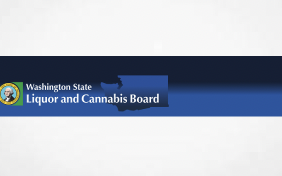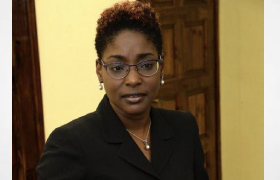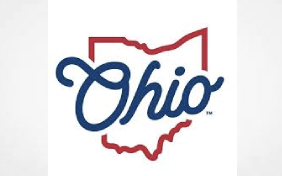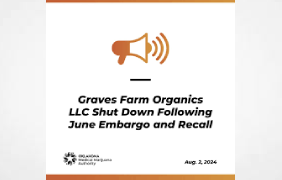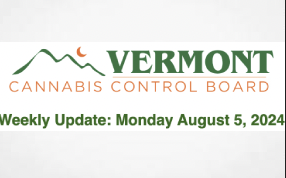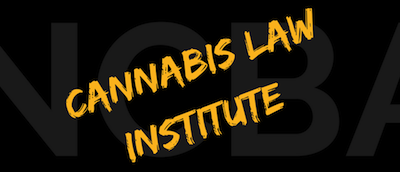Here’s what they say , the schedules, everything….
Join your colleagues at the Cannabis Law Institute, the seminal two-day cannabis industry legal education event produced by the National Cannabis Bar Association in partnership with The George Washington University Law School on September 7-8, 2017 in Washington D.C.
This event will convene the best minds and visionaries working in the legal cannabis industry for two days of legal education and will include intimate evening networking events. The conference will feature many of the nation’s leading attorneys, academics, and politicians.
The conference offers multiple tracks for practitioners, academics, and policy advocates. Courses range from introductory to advanced, and this year, NCBA is excited to announce a partnership with Minority Cannabis Business Association (MCBA), which will host a single-day policy track alongside the Cannabis Law Institute.
The MCBA track will address minority involvement in the cannabis industry as it develops. It is important for all involved in the cannabis industry to recognize that, we, as an industry, must not only ensure that past wrongs and incarceration for now-legal activities are remedied, but also that there is a place in this vibrant new economy for those that have been historically hard-hit by the drug war.
MCBA Tickets will grant access to keynotes and to the Friday afternoon MCBA policy track, but will not grant access to NCBA Tracks or CLE Credit.
Location of the Conference
Our opening sessions will be held at the Jack Morton Auditorium, a beautiful venue located in the Media and Public Affairs Building, at 805 21st St NW, Washington, DC 20052. A box lunch will be provided at the conclusion of our morning sessions, and we encourage our attendees to stroll over to the Law School, pick a spot outside for lunch, and prepare yourselves for the excited afternoon sessions.
Beginning Friday afternoon, we will begin our break-out sessions at The George Washington University Law School, which is located just across H street at 2000 H Street NW, Washington D.C., 20052.
Accommodations
The National Cannabis Bar Association engages in a continuous effort to make our conferences accessible and we have arranged two hotel blocks to accommodate you. We anticipate that these will be going quickly, so we recommend that you book as soon as possible. The hotel blocks will close on August 6, 2018, so don’t wait! After that date, you will have to arrange your own accommodations.
Conference Hotels:
The Hive. The Hive is a micro hotel that mixes smart design with the unexpected and unites modern innovation with historic character. With its prime location, Hotel Hive guests can buzz about the city and return to a unique and innovative hotel experience, while being only steps away from the conference. The Hive’s efficient rooms provide guests with everything they need and nothing they don’t, measuring 125–250 square feet, providing a unique experience. Contact [email protected] for booking information.
Courtyard by Marriott. For a more traditional hotel experience, check out the Courtyard. Also only blocks from the GW Law campus, the Courtyard offers the perfect blend of comfort and convenience. The hotel is located in the heart of the nation’s capitol just blocks from the Washington Monument, the White House, National Mall, the Smithsonian Institution, DAR Constitution Hall and George Washington University.
Booking: Book your group rate for Canbar Association Room Block.
Hotel Lombardy. Situated in the heart of DC’s Business District, Hotel Lombardy offers a classic European-style experience for discerning business and vacation travelers. A blend of historic charm and contemporary urban sophistication, our downtown boutique hotel offers elegant accommodations and exceptional hospitality just steps away from Washington, DC attractions, government buildings, and corporate destinations. To make reservations, call the hotel at (202) 828-2600 or toll-free at (800) 424-5486, and refer to #3820 National Cannabis Bar Association when calling.
Schedule
Friday, September 7
9am-9:15am – Registration and Check-In (Please arrive at Jack Morton Auditorium, 805 21st St NW, Washington, DC 20052)
9:15am-10:15am – Ethics: Conflicts of Interest
10:20-10:30 – Introduction Remarks from NCBA & MCBA
10:30-11:30am The Legal and Business Case for Diversity
11:30-12:00 Morning Keynote
12:00-1:00pm Lunch
1:00pm – 1:30pm Afternoon Keynote
1:45pm-6pm: Afternoon Tracks (Take place at GW Law, 2000 H Street NW, Washington D.C., 20052)
NCBA TRACK 2:
Applying Accepted Principles to a New Industry
Unit 1: The Changing Status Quo
Lessons Learned from Other Regulated Industries. Examine other highly regulated industries and how the cannabis industry can learn from their existing and emerging issues. From recalls of agricultural products to HIPPA in healthcare to the distribution model in alcohol and the marketing restrictions in tobacco/alcohol. Why relearn the lessons others have already learned?
The Enduring Manifestations of Prohibition. Panelists will examine how federal prohibition has shaped the industry, including how prohibition has curtailed access to banking, bankruptcy courts, SBA loans, federal intellectual property protection, and the growth of the CBD market.
Government Relations on the Federal Level. We’ve made progress, but much remains to be done. Lawyers are advocates, but lobbyists are an entirely different animal. Learn about where we are as an industry, the politicians on our side, and how we are moving the ball forward on the federal level what are the best avenues for you and your clients to be advocates for the industry, and how we can shape an industry going forward to promote social responsibility, market efficiency, and long term success.
NCBA TRACK 1:
Business as Usual in an Unusual Setting
Unit 1: The Intersection of Law and Policy
Federalism & States Rights. Explore the supremacy clause, and the interaction of state and federal law in this unique industry. Examine the current protections for state-legal regulatory regimes, from the Cole Memo to the Rohrabacher-Blumenauer amendment and the pending federal regulations, including the STATES Act and Marijuana Freedom and Opportunity Act. This session will be moderated by the interim Executive Director of the Marijuana Policy Project, Mathew Schweich.
Business Initiatives: Taxation & Banking. Take a deeper look at banking and tax policy surrounding the cannabis industry, including 280-E, and learn the best way to navigate current laws, and what policy changes could provide the industry relief. This session will be moderated by the Executive Director of the National Cannabis Industry Association, Aaron Smith.
The Future of Medical Marijuana. In states that have passed adult-use regulations on top of their medical regimes, we’ve seen a convergence of the regulatory requirements that, in some cases, effectively eliminate the bifurcated market. As more states’ adult use markets come online, will we see the importance of the medical market diminish? Is there – and indeed, should there be – a separate set of medical regulations as the sigma of cannabis continues to fall away? This session will be moderated by the Executive Director of Americans for Safe Access, Steph Sherer.
Minority Cannabis Business Association (MCBA) Policy Track
(Intended for non-attorneys, will run concurrently with NCBA Friday Afternoon Tracks)
State and Local Policies Supporting Minority Inclusion in Cannabis: A Current Survey
Putting the Puzzle Together: The Interaction of Local Equity Programs with State Licensing.
The Missing Piece: How Federal Policy Can Be Crafted to Support Minority Inclusion in the Cannabis Industry.
6pm-9pm Evening Networking Event at GW Law!
Join fellow attendees, members of NCBA, and members of MCBA for an evening networking event at the GW Law Campus, with drinks, light bites, and wonderful company!
Saturday, September 8
9 – 9:15 am – Check in and registration
9:15 am – 12:30 pm Morning Tracks:
Unit 2: Disputes, Litigation and ADR
Initiating Litigation: Entity Disputes, Intellectual Property, Insurance and Other Claims. Breaking up is hard, and so is suing your insurer. How do you decide when to initiate a law suit, and what steps should you take first? Consider the options: demand letters, pre-litigation negotiations, and then, the time and place to initiate a law suit, whether it’s against a commercial partner, a business partner, an insurer, or anyone else you may find yourself in a legal disagreement.
Defending Against: Products Liability, RICO, Dram Shop/Social Host, and Other Claims. Now that we’ve laid the groundwork on how to initiate suit, it’s time for a look at the other side of the equation. Examine strategies to defend against products liability, civil RICO, liability for injuries caused by on-site consumption, and a host of other claims.
Settlement, Mediation and Arbitration. Finally, examine the shortcomings of our court system when dealing with disputes in the cannabis industry. Aside from expense and judicial inefficiency, do we still have worry about the enforceability of contracts that deal with a federally illegal substance? Mediation and arbitration clauses and contractual agreements to abide by the decisions of an adjudicatory body outside of our well-established court system, but without a bank of precedential decisions, not only provides a lower-cost alternative, but may provide increased certainty over courts in this all-but-traditional industry.
Unit 2: Managing Growth
Getting to Know You: Due Diligence. Whether your client is investing, seeking investment, considering a new business partner, or entering into a long-term sales contract, it is imperative to conduct due diligence of any prospective counterpart. In this industry, more than any other, you can’t take a potential new collaborator at face value. Learn what to look for, red flags, and signs that indicate there is a green light.
Financing & Investment. Bank loans, private equity, 506(d) – let us help you understand the best way for your clients to raise money for each step in the lifecycle of their company, from seed to growth to exit, always with an eye towards the ultimate goals of your client, whether that is long term ownership, an international presence, or exiting.
Public and Private: Preparing for an IPO or a Merger. Many clients start businesses with an eye towards initial growth followed by an exit, which can take you one of two directions. The Canadian market for cannabis-related IPOs is heating up, and US M&A has been on fire since January 1, when California’s adult use market came online. Are there different considerations to take into account during each growth stage based on the exit your client wants to see? Learn how to prepare for the desired exit , and how to analyze the options.
12:30pm – 1:30pm Lunch
1:30pm-5:30pm: Day Two Afternoon Tracks
Unit 3: Overlooked in the Industry
What In-House Counsel Want You To Know. As the industry grows, more and more companies are hiring in-house counsel to handle many of their daily legal obligations. While outside counsel are generally specialists in a particular substantive area of law, in-house lawyers have to deal with a range of issues that arise, and there are substantive legal pieces of the puzzle they wish you knew, as well as practical business considerations that affect how they assess risk and make decisions. And, of course there is the age-old dilemma bout how much communication is enough, optimal, or just too much.
Employment & Labor. Does your client even have an employee handbook? A sexual harassment policy? Paid vacation and FMLA leave? How businesses treat their employees is one of the largest sources of legal liability in any business, and it’s an area that was long ignored in the grey market cannabis industry. Now that we are coming into the light, so must your client’s employment practices.
Corporate Governance. Basic governance is paramount in the cannabis industry, and is required for basic legal protections like the limited liability that comes with the creation of a business entity. While most clients understand the importance of limited liability and protections stemming from the corporate form, they often put those protections in jeopardy based on their behavior. Co-mingling assets, lack of formal board meetings, minutes, and key decisions, and failure to properly document inter-company loans are a few of the basic mistakes that we, as an industry, need to address.
Unit 3: Crossing Borders
Interstate and International Growth: Brand and Technology Licensing. Given the federal prohibition in the US, cross border growth has become a function of how your clients license their intellectual property, whether on a domestic or international level. To carve out a national or international presence, you need IP protections, and you need robust licensing agreements that allow you to exert control over your brand and IP assets without falling afoul of interstate or international ownership limitations or franchising laws.
Oh Canada, Oh Cannabis. Take a closer look at our neighbors north of the border who offer the possibility opportunities for investment, partnership, and international commerce. As Canada moves towards a less stigmatized and a more open market, examine the opportunities that exist in Canada.
International Considerations and Opportunities. TTake a look at the UN’s International Narcotic’s Control Board, the current market for international imports/exports, and where we are going in the future. Examine the legality of importing/exporting CBD and THC products to and from various countries and how relationships with operators outside of the US can help your client’s establish an international presence sooner rather than later.
5:30pm – Post Conference Drinks at Founding Farmers, just down the street from GW Law!*
